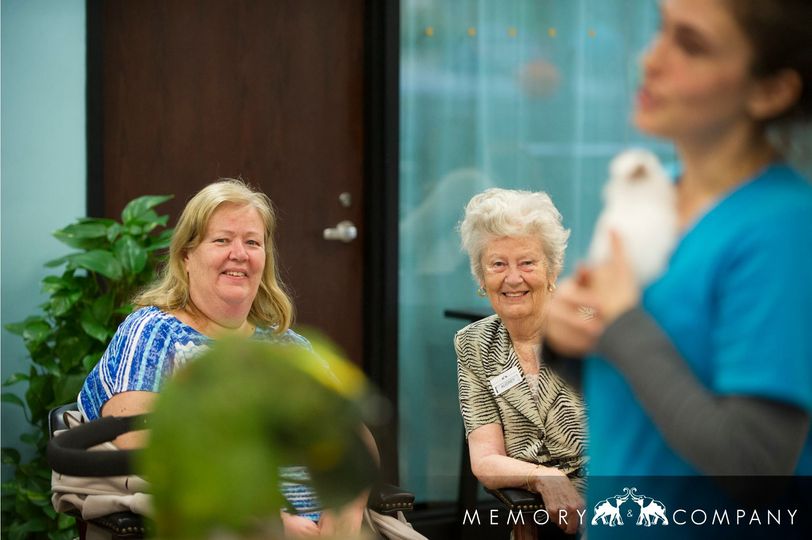Living with a spouse who has dementia, or a form of Memory Loss often feels like navigating through an emotional maze. The path is fraught with grief, isolation, and fatigue. Yet, amid these struggles, there are ways to find solace and support. Memory Care environments can provide a lifeline, offering much-needed respite and professional care. This blog will explore the hidden emotional struggles of caregiving for a spouse living with dementia and how Memory Care can help lighten the load.
The Hidden Emotional Struggles of Caring for a Spouse Living with Dementia
Caregiving for a spouse living with Memory Loss can be overwhelming. The marital relationship transforms from a partnership into a caregiving dynamic, adding layers of complexity to the emotional experience.
Grief and Loss
Caregiving spouses often experience anticipatory grief, mourning the gradual loss of their partner even while they are still alive. Physically, the person being cared for is present, but the mind transforms into one of a stranger. This grief arises as the spouse’s personality, abilities, and memories fade. This can cause the care partner to grieve the relationship they once had. The spousal care partner may also experience moments of sadness, loss, and depression, making it challenging to find joy in the present moment.
Isolation and Loneliness
In the early stages of Memory Loss, both spouses may enjoy social activities and interactions with family and friends together. But as the condition progresses, spouses often find themselves disconnected from social circles and unsupported in their roles. Social interactions dwindle as the spouse’s cognitive abilities decline, leaving the care partner feeling alone in their struggles. In addition, when a spouse can no longer communicate or participate in shared activities, the emotional bond can feel strained, affecting the core of the marital relationship.
Care Partner Burnout and Fatigue
Caregiving is a 24/7 responsibility, leading to physical and emotional exhaustion. This can lead to care partner burnout, a state of physical and emotional exhaustion brought on by the needs of the person receiving care. The emotional and physical toll on the body can be exacerbated over time, leading to a lack of empathy, energy, and focus on providing quality care. Both the person living with Memory Loss and the care partner can be at high risk for severe physical and mental health conditions without help to prevent burnout.
Role Reversal and Identity Loss
When one spouse must take on the responsibilities of caring for the other, the traditional roles within the marriage begin to shift, moving from a traditional marital partnership to one centered around caregiving. This shift can cause psychological strain and identity loss as caregivers prioritize their spouse’s needs over their own. The sense of self can become intertwined with the caregiving role, making it difficult to maintain personal identity.
Guilt and Emotional Conflict
One of the biggest challenges caregiving spouses face is the feelings of guilt as conflicting emotions begin to set in. They may feel they are not doing enough, even when they are overwhelmed. This guilt can be paralyzing, making it hard to seek help or take time for themselves. Balancing the desire to care for a spouse with the need for self-care can create conflicting emotions. Care partners may feel torn between their responsibilities and their personal needs, leading to feelings of frustration and resentment.
How Memory Care Environments Help Lighten the Load for Caregiving for Spouses
Respite Care: A Crucial Break
Care partner support can entail both short-term respite care and longer-term options. Memory care environments offer respite care, providing caregivers with a much-needed break. These short-term stays allow spouses to rest and focus on their well-being, helping to prevent burnout and preserve emotional stability. This can lead to enhancing the quality of care they provide to their spouse as a break from responsibilities improves one’s physical, mental, and emotional health.
Professional Care for the Loved One
Trained professionals in Memory Care environments have the experience and expertise to communicate with and assist those living with Memory Loss. Since there are many physical, emotional, and mental challenges associated with Memory Loss, knowing that their loved one is properly being cared for relieves stress, worry, and concern for caregiving spouses. These settings also offer a safe and secure environment.
Preserving the Spousal Relationship
Memory Care environments allow caregiving spouses to spend quality time with their loved ones without the stress of caregiving duties. This shift can help preserve the emotional connection and maintain dignity within the relationship. Spouses can focus on being life partners rather than care partners, enriching the bond they share.
Improving the Overall Well-Being of Both Partners
Memory Care is designed to enhance the quality of life of the person living with Memory Loss with person-centred activities and therapies. These services engage and stimulate the mind, enhancing the quality of life for both partners. Caregiving spouses benefit from knowing their partner is engaged and well cared for, reducing stress and anxiety.
Understanding When It’s Time to Transition to Memory Care
Recognizing the signs of caregiver burnout is crucial. In the early stages, burnout is commonly referred to as “care partner strain” where feelings of anger, hopelessness, a lack of empathy, and resentment begin to set in.
Emotional exhaustion, a decline in physical health, and an inability to perform daily tasks are only part of the initial burnout stage. Other signs may involve but are not limited to, sleep disturbances, fatigue, loss of appetite, withdrawal from hobbies or social interactions, and feelings of irritability or depression.
Discover How Memory & Company Can Help Lighten the Load for Caregiving Spouses
At Memory & Company, we focus on compassionate and comprehensive Memory Care for the person living with dementia and their care partners. As the world’s first Respite Hotel, we offer a Premium Day Program, long-term open-ended stays, and short-term respite care curated by experienced and qualified professionals. Contact us today to schedule a personal tour of our Markham or Oakville location.



